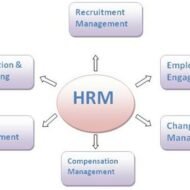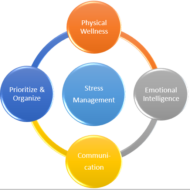Posted by Managementguru in Business Management, Change management, Human Resource
on Jun 25th, 2014 | 0 comments

Smith et al. describe management as “Making Organizations perform”. Management is concerned with Individuals who are delegated authority to manage others – Let me call them ‘People with Power’. Activities for achieving goals – ‘Real Action Plans’. A body of knowledge represented by theories and frameworks about people and organizations – ‘Policy Framework’. What do managers do? As we all know they are involved in general management functions like Forecasting Planning Organizing Motivating Co-ordinating Controlling Are you aware of the ‘hidden’ dimensions of a manager’s job? Modern management theories, although highlighting the complexity of the role, have yet to provide sufficient empirical research and advice into key areas that enable both managers and organizations to increase their effectiveness. For example Dealing competently with organizational politics (“You can ignore it, but it won’t go away” – This is how surveyed employees said they viewed office politics) Successfully managing change (Adaptability is about the powerful difference between adapting to cope and adapting to win) Controlling ethical issues and demands (It takes 20 years to build a reputation and five minutes to ruin it. If you think about that, you’ll do things differently.) Developing the role of women managers (Women can be better managers than men because they tend to be more conservative and do their homework. Men tend to take more risk without the research) Ensuring personal ‘survival’ and career success in organizations (A successful man is who lays a firm foundation with the bricks others throw at him.) Safeguarding personal health in a stressful environment (Manage stress before it manages you). How to achieve a more comprehensive view of development? Frameworks for setting, linking, and balancing individual and organizational objectives. Systems for identifying and selecting managers Structures to support, motivate and reward Plans to enable career progression Mechanisms to measure and evaluate performance. HRM and Management Development Human resource management as the name suggests is about the effective management of people in organizations. HRM involves the integration of people with business goals and strategies HRM views people as assets to be developed and utilized in a productive way rather than costs to be minimized or eliminated. The philosophies, ideologies, values and beliefs of management that operate and dominate within the organization have an impact on people management. The practices, policies and management styles that managers employ in their managerial role also align people’s behavior towards organizational goals. Senior managers determine the extent to which people are integrated into the organization’s strategic plans. They set the agenda and create the culture climate of prevailing values, attitudes and behavior. Middle and junior managers translate and ‘operationalize’ broader human resource strategies and policies. They give HRM its meaning and reality. It is their perfect management style and actual behavior that decided how the human resources is deployed and managed and thus what people experience as human resource management. The way managers themselves are managed and developed is a significant influencing factor in the way people are subsequently...

Posted by Managementguru in Human Resource, Motivation, Organisational behaviour, Principles of Management, Stress Management, Training & Development
on Mar 19th, 2014 | 0 comments

Did you know that without your knowledge, your health might be deteriorating due to pressure at work. Effective stress management is the only way out to become happier, healthier, and more productive. Whatever we do or say has a direct effect on our physiological processes as it affects our psyche-both positive and negative. While positive vibes act as a booster to our health, enhances the morale causing increased productivity which is “THE CONTRIBUTION FACTOR” in corporate organisations, negative vibes causes distress to the party affected and in-turn the organisation. Though in a small way, which is enough to cause great distress waves amonsgt the entire organisation through grapevine. Morale Surveys Therefore, it becomes necessary that every organisation takes some time to understand and analyse the mind-set of their employees to maintain the entire health of their firm. This can be done through surveys or questionnaires which serve as best platforms that shoulder employees’ opinion. On the side of the individual, he also should spare some time, from time-to-time to analyse his attitude towards the organisation and his/her colleagues and how it affects his/her performance. Management scholars say that “SELF-APPRAISAL” is the best tool for enhanced organisational performance and productivity. What is Stress? It is very important to understand what stress is, to combat it. Stress is nothing but a condition where people get excited emotionally or in other words ” a disturbed mental state” affecting the well-being. The causal agents may be physiological which can be medically treated or emotional which we are more worried about as emotionally unstable individuals cannot think properly which again leads to physical distress. It becomes therefore vital to know how we perceive and interpret things through our cognitive skills, again influenced by environmental factors to a considerable extent. People, particularly working in corporate environment and IT industry are subjected to much stress and they don’t know how to find a vent to their feelings or when there is no adequate support from the family side. What are the Ways Out? So, what is it we do at times like these? Not to bother. The mantra is “RELAX” to the maximum possible extent. First thing extract yourself away from the scene of action so that you could breathe some fresh air. Then think calmly and try to isolate the bug that is bothering you. Here the problem is the bug and analyse how far you have become vulnerable to the situation. Gauge the amount of damage done and rate the problem in terms of ” recoverable by myself- no help needed”, ” recoverable- but with external support”. Remember, for every problem there is a solution. It may not be tailor- made, but definitely passable with little bit of compromise from our end if necessary. 10 Yoga Poses You Should Do Everyday to Combat...




